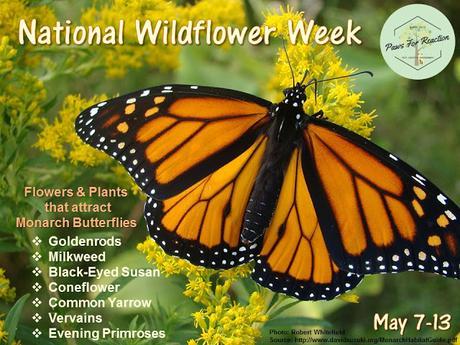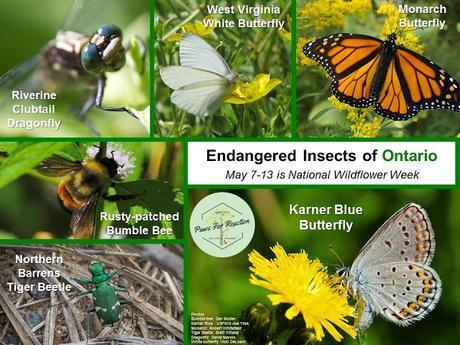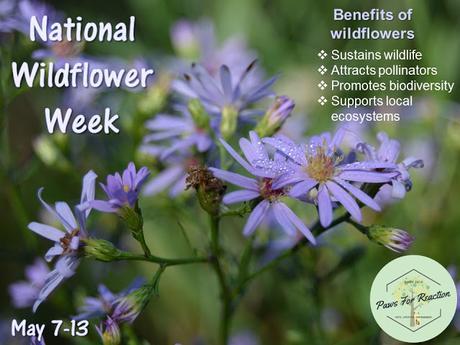Spring is here and the wildflowers are budding and blooming. Wildflowers are more than just beautiful and sweet smelling. Wildflowers support entire ecosystems, promote biodiversity and sustain life. Bees and butterflies work with the wildflowers to pollinate their habitat. Wildflowers play an important part in the balance of nature. May 7 - 13 is National Wildflower Week and when I think of wildflowers, I automatically think of the Monarch butterfly. Like many people in Ontario, the Monarch butterfly holds a very special spot in my heart, over all other butterflies. Sadly, I see less Monarch's now than I did when I was growing up. A decline in Monarch butterflies puts a lot of strain on our ecosystem. 90 per cent of the world's plants rely on pollinators like bees and butterflies for reproduction and fertilization, inducing common plants that feed our nation.
Photo & story by Stacey McIntyre-Gonzalez Copyright©
Monarch populations are at an all time low. A 2013 study by World Wildlife Fund in Mexico showed that Monarchs wintering in Mexico were at the lowest numbers in 20 years. Deforestation and forest degradation are the main causes of the decline in Monarch populations. Deforestation doesn't just remove trees, but also the milkweed that the Monarch caterpillars feed on. The butterflies lay their eggs on the underside of milkweed leaves. Milkweed is essential to the Monarch's life cycle, and if the milkweed is removed from their migration path, this orange beauty flies closer to extinction.Many commonly used herbicides, like Roundup, kill milkweed. A Monarch advocacy organization called Monarch Watch estimates that 60 million hectares of milkweed habitat has been lost in the USA due to herbicide use. They also estimate an additional six million hectares has been lost due to the building of residential developments and roads. Climate change is also a threat to the Monarch butterfly. Butterflies are highly sensitive to weather and climate changes. Even small changes in the climate can effect a Monarch's reproduction, migration and hibernation patterns. Butterflies are highly sensitive to extreme weather caused by climate change, like drought.

A Monarch butterfly's greatest defense is milkweed. Many different types of milkweed can sustain life for Monarch butterflies. While other wildflowers can help repopulate the Monarchs, milkweed is obviously the most important of all. Growing certain wildflowers and milkweed can give Monarchs a chance to thrive again. I can't imagine a future without these beautiful creature.
CLICK HERE to learn more about creating a habitat for Monarchs from David Suzuki!


